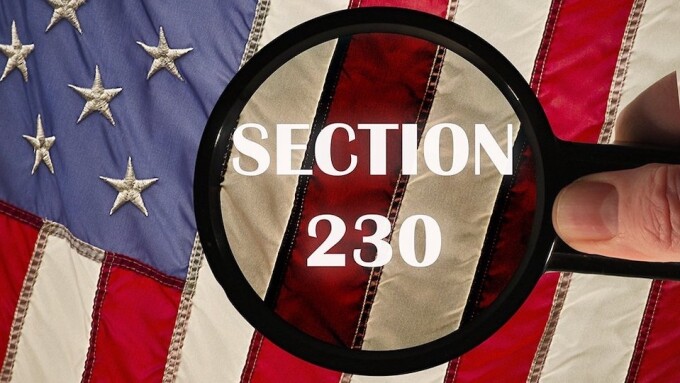SAN FRANCISCO — The Ninth U.S. Circuit Court of Appeals on Wednesday dismissed a lawsuit sponsored by anti-porn activists against Twitter over user-uploaded content, upholding Section 230.
As XBIZ reported, religiously inspired anti-porn lobby NCOSE (formerly known as Morality in Media) helped file a lawsuit in January 2021 against Twitter over posts that include nude photos of minors. The plaintiffs claimed Twitter was liable due to the Section 230 loophole opened by the passage of FOSTA-SESTA in 2018.
In a previous ruling, U.S. Magistrate Judge Joseph Spero held that Section 230 shielded Twitter from claims that it participated in child pornography and sex trafficking, but allowed the plaintiffs to sue the company for “allegedly profiting from the traffickers’ illegal conduct,” the San Francisco Chronicle reported today. “The appeals court, however, said such claims were also barred by a Ninth Circuit ruling last fall in a suit against the online network Reddit.”
The lawsuits were filed in San Francisco on behalf of two men, each only identified as John Doe, who were minors at the time of the posts.
“One, who lives in Florida, said he was duped into posting nude photos in 2017 by someone posing as a 16-year-old girl at his school, then blackmailed into providing additional sexually explicit photos and videos by traffickers who threatened to tell his parents and others if he refused,” the Chronicle reported. “After his classmates began viewing the videos in 2020, the suit said, the youth faced harassment and bullying and became suicidal, while the other John Doe dropped out of school.”
Lawyers for NCOSE built their argument on FOSTA-SESTA’s claim that Section 230, the so-called “First Amendment of the internet,” was “never intended to provide legal protection to websites that unlawfully promote and facilitate prostitution and websites that facilitate traffickers in advertising the sale of unlawful sex acts with sex trafficking victims” and that “websites that promote and facilitate prostitution have been reckless in allowing the sale of sex trafficking victims and have done nothing to prevent the trafficking of children and victims of force, fraud, and coercion.”
The lawsuit made several mentions of a 2018 Amnesty International report titled “Toxic Twitter, A Toxic Place for Women” and took aim at Twitter’s moderation policy, claiming that “as long as content on Twitter’s platform remains live, Twitter monetizes that content regardless of whether it is contrary to Twitter’s own policies or promotes illegal conduct.”
Twitter, the lawsuit claims, “thus profits from content on its platform that depicts rape, sex trafficking, child sexual abuse and other illegal activity.”
The ACLU and Free Speech Coalition successfully argued in a filing that encouraging the lawsuits promoted by NCOSE and other anti-Section 230 groups would force Twitter, Reddit and other open platforms to either “remove protected, societally beneficial content to avoid the threat of liability — thereby depleting the full scope of speech and information available to the public — or they would opt to remain willfully ignorant of content posted on their services to avoid having any possible awareness (and therefore arguably constructive knowledge) of illegal content appearing there.”
FSC's Director of Communications Mike Stabile told XBIZ that the Ninth Circuit decision "reaffirms that platforms do not have liability for the actions of independent users. While all platforms should fight illegal content, we have seen how anti-porn groups have tried to weaponize FOSTA and other anti-trafficking provisions to not only go after bad actors, but to encourage widespread censorship and deplatforming of sex workers."








